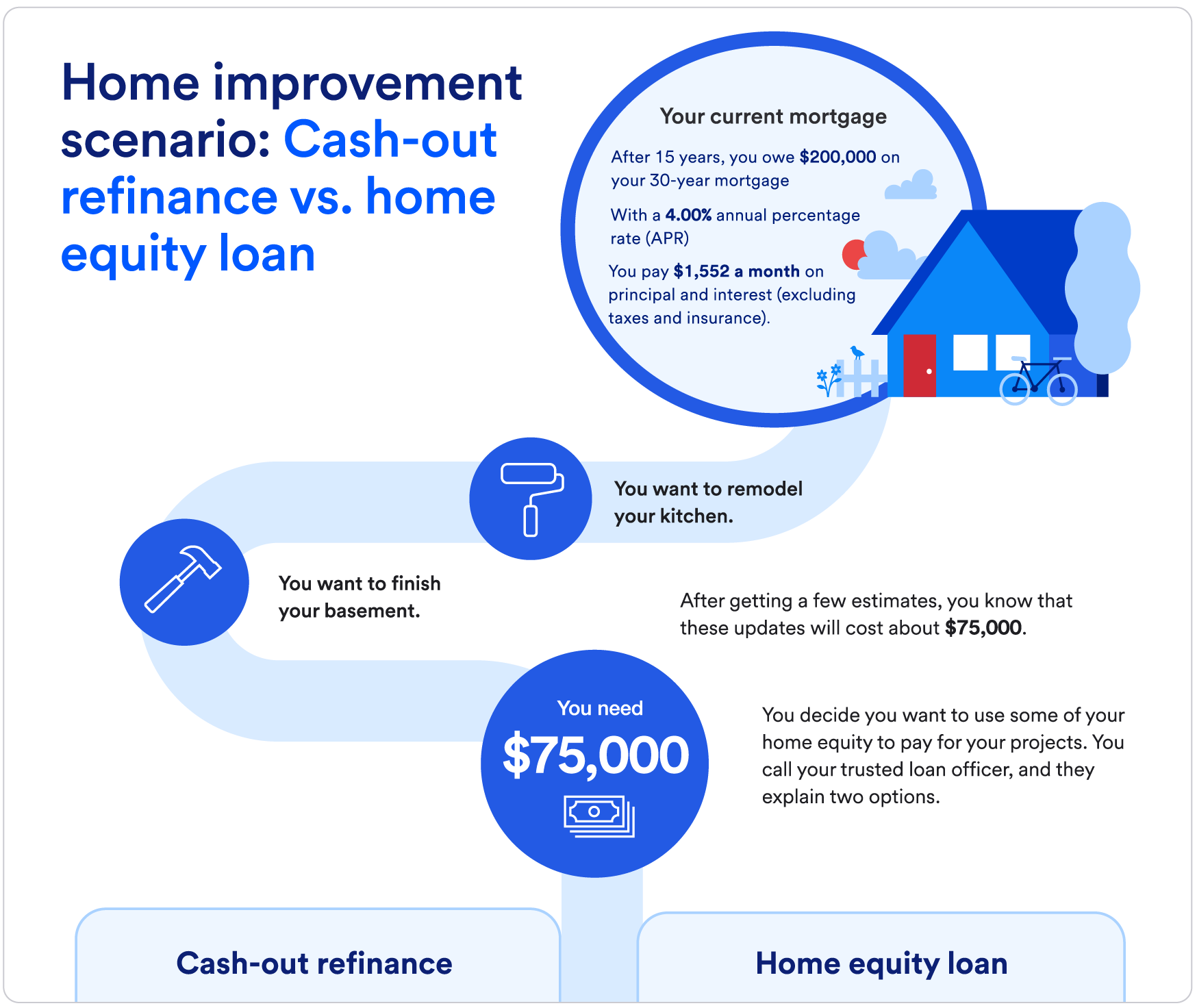Widespread Myths and Facts About Equity Release Mortgages
Widespread Myths and Facts About Equity Release Mortgages
Blog Article
Checking Out the Various Kinds Of Equity Release Mortgages Available Today
Equity Release mortgages present different alternatives for homeowners aged 55 and over. equity release mortgages. These economic products accommodate different needs and choices, permitting individuals to gain access to funds from their residential or commercial property. From lifetime home loans to shared appreciation home loans, each kind provides unique benefits. Comprehending these alternatives is essential for making informed decisions. What elements should one think about when choosing the most ideal equity Release strategy? The information that follow may clarify this crucial topic
Recognizing Equity Release Mortgages
Equity Release mortgages provide home owners, usually those aged 55 and over, with a way to access the worth bound in their home without requiring to market it. This economic option permits people to transform a part of their home equity into cash money, which can be used for numerous objectives, such as home enhancements, paying off debts, or financing retirement.Equity Release can take various kinds, yet it fundamentally includes borrowing versus the value of the home while retaining possession. Home owners can choose to receive a lump amount or a collection of smaller payments, depending on their economic demands and preferences.Additionally, the quantity readily available for Release is affected by the property's value, the house owner's age, and certain lender criteria. On the whole, comprehending equity Release home loans is necessary for property owners to make informed decisions regarding taking advantage of their home's equity while thinking about the long-term ramifications.
Life time Mortgages
Life time home loans stand for one of one of the most popular kinds of equity Release. This economic item allows homeowners, commonly aged 55 or older, to borrow against the value of their residential or commercial property while retaining ownership. The finance, which is secured versus the home, accrues passion with time however does not need monthly settlements. Instead, the loan and accrued passion are settled when the house owner dies or relocates right into long-lasting care.Lifetime home loans use flexibility, as customers can pick to obtain a round figure or select a drawdown facility, accessing funds as required. Notably, many plans come with a no-negative-equity warranty, making certain that customers will certainly never owe more than the worth of their home. This feature supplies assurance, enabling people to enjoy their retired life without the concern of depleting their estate. In general, life time home mortgages function as a sensible alternative for those seeking financial assistance in later life.
Home Reversion Plans

Drawdown Lifetime Mortgages
While numerous property owners look for methods to access their wealth, drawdown lifetime mortgages offer a flexible alternative that permits individuals to Release funds gradually. This sort of equity Release home loan makes it possible for property owners to borrow against the value of their residential property while retaining possession. Unlike traditional life time mortgages, drawdown strategies enable customers to access a part of their equity upfront and withdraw extra funds as required, up to a fixed limit.This feature can be particularly advantageous for those who wish to handle their finances thoroughly, as it reduces rate of interest build-up by just billing interest on the amounts attracted. Furthermore, drawdown life time mortgages frequently include a "no adverse equity assurance," making sure that customers will never ever owe greater than their home's worth. This option matches retirees who prefer financial safety and adaptability, permitting them to fulfill unforeseen expenses or preserve their lifestyle without having to sell their residential or commercial property.
Boosted Lifetime Mortgages
Improved Lifetime Home loans provide unique benefits for eligible home owners looking for to Release equity from their residential properties. Comprehending the eligibility standards is crucial, as it identifies who can benefit from these specialized finances. Nevertheless, it is also important to review the prospective disadvantages related to boosted options, ensuring a well-rounded viewpoint on their usage.
Qualification Criteria Described
Comprehending the qualification standards for Boosted Life time Mortgages is necessary for possible candidates seeking to access the equity in their homes. Normally, candidates must be aged 55 or older, as this age need is standard in the equity Release market. Home owners need to have a building valued at a minimal limit, which can vary by lending institution. Significantly, the home must be their main residence and in great problem. Lenders usually examine the homeowner's health and wellness standing, as particular wellness problems may boost qualification and advantages. Additionally, applicants should not have existing significant financial obligations secured versus the residential property. Meeting these standards enables people to check out Boosted Life time Mortgages as a sensible choice for accessing funds connected up in their homes.
Advantages of Boosted Home Loans
After clearing up the qualification standards, it comes to be apparent that Improved Lifetime Home mortgages supply numerous substantial advantages for home owners seeking to leverage their residential or commercial property equity. Primarily, they supply accessibility to a bigger funding amount contrasted to typical lifetime mortgages, benefiting those with health conditions or age-related variables that boost their life span danger. This boosted loaning capability allows property owners to satisfy different economic requirements, such as home enhancements or retirement expenditures. Furthermore, these mortgages typically feature versatile settlement choices, allowing consumers to basics handle their finances better. The no-negative-equity assurance even more assures that house owners will certainly never owe greater than their building's worth, giving assurance. Generally, Improved Lifetime Home loans present an engaging option for qualified house owners looking for monetary services.
Potential Disadvantages Taken Into Consideration
While Boosted Life time Home mortgages offer countless advantages, prospective drawbacks require careful consideration. One considerable issue is the effect on inheritance; the equity released lowers the worth of the estate entrusted to beneficiaries. In addition, these home loans can build up substantial interest with time, resulting in a significant financial debt that might go beyond the initial car loan amount. There may also be restrictions on residential or commercial property modifications or rental, limiting home owners' flexibility. In addition, boosted products commonly need specific health and wellness conditions, suggesting not all property owners will certainly qualify. Lastly, taking care of the charges and costs related to these mortgages can be intricate, potentially causing unanticipated prices. Because of this, individuals need to thoroughly analyze their scenario and speak with monetary consultants before continuing.
Shared Recognition Mortgages
Shared Appreciation Mortgages stand for an unique monetary arrangement that permits homeowners to gain access to equity while sharing future residential property worth increases with the lender. This technique offers potential advantages such as reduced month-to-month repayments, but it also features downsides that need to be meticulously taken into consideration. Understanding the qualification requirements is crucial for those interested in this option.
Principle Overview
Equity Release home loans, specifically in the form of shared recognition home loans, provide property owners a distinct financial service that enables them to accessibility funds by leveraging the value of their building. In this plan, a lender provides a finance to the property owner, which is normally settled via a share of the residential property's future recognition in worth. This implies that when the homeowner markets the residential or commercial property or dies, the lender receives a portion of the increased value, rather than just the first loan quantity. Shared appreciation mortgages can be appealing for those aiming to supplement their earnings or money considerable expenses while retaining possession of their home. However, the monetary effects of shared admiration need to be very carefully thought about by potential customers.
Disadvantages and benefits
Common admiration mortgages can offer substantial economic benefits, they additionally come with notable disadvantages that potential customers ought to consider. These home mortgages enable house owners to accessibility equity in their homes while sharing a portion of any future appreciation with the lender. This plan can be helpful throughout times of rising property worths, using substantial funds without regular monthly payments. The main drawback is the possible loss of equity; home owners may end up with considerably minimized inheritance for beneficiaries. In addition, the intricacy of the terms can lead to misconceptions pertaining to repayment commitments and the portion of appreciation owed. For that reason, it is necessary for debtors to evaluate these aspects very carefully prior to committing to a shared admiration mortgage.
Qualification Needs
What criteria must homeowners satisfy to qualify for a common gratitude mortgage? Mainly, prospects must go to least 55 years old, guaranteeing they are within the target demographic for equity Release products. Furthermore, the residential or commercial property must be their primary house and typically valued above a defined minimum threshold, usually around ? 100,000. Lenders also evaluate the home owner's monetary situations, including earnings and exceptional financial obligations, to ascertain they can manage the mortgage responsibly. Importantly, the property needs to be in excellent problem and devoid of significant lawful encumbrances. Homeowners need to additionally have a clear understanding of the terms, including how admiration will certainly be shared with the lending institution upon sale or transfer of the building, as this impacts total returns.
Picking the Right Equity Release Choice

Often Asked Questions
What Age Do I Required to Be for Equity Release?
The age requirement for equity Release go to this website usually starts at 55 for most plans. However, some suppliers may supply options for those aged 60 and above, showing varying terms based upon private conditions and loan provider policies.
Will Equity Release Affect My Inheritance?
Equity Release can impact inheritance, as the quantity borrowed plus interest minimizes the estate's worth. Beneficiaries might receive less than anticipated, depending on the property's appreciation and the overall financial obligation at the time of passing.
Can I Move Home With Equity Release?
The concern of relocating residence with equity Release occurs often. Typically, people can move their equity Release strategy to a brand-new property, however certain terms and problems might apply, requiring assessment with the lender for support.
Exist Fees Related To Equity Release Mortgages?
Costs related to equity Release mortgages can consist of arrangement fees, appraisal costs, and lawful expenses. In addition, there might be very early repayment fees, which can impact the total cost and economic effects for the customer.
Exactly How Does Equity Release Effect My Tax Obligation Circumstance?
Equity Release can influence one's tax circumstance by possibly increasing taxed earnings, as launched funds are taken into consideration resources. It normally does not sustain instant tax obligations, making it vital to consult an economic expert for individualized guidance.
Final thought
In summary, the range of equity Release mortgages offered today uses house owners aged 55 and over numerous paths to access their building's value - equity release mortgages. Whether deciding for a life time home loan, home reversion strategy, or various other choices, each choice presents unique advantages customized to individual monetary demands. Careful consideration and consultation with a financial consultant are essential to assure the chosen equity Release service aligns with economic conditions and personal objectives, eventually assisting in educated decision-making for a safe economic future. Equity Release home loans present numerous alternatives for home owners aged 55 and over. Equity Release home mortgages give house owners, normally those aged 55 and over, with a means to access the worth connected up in their property without requiring to offer it. Boosted Life time Home mortgages provide distinct advantages for eligible property owners seeking to Release equity from their properties. Equity Release home mortgages, particularly in the form of shared admiration home mortgages, use house owners a special economic service that permits them to accessibility funds by leveraging the worth of their home. In summary, the range of equity Release home mortgages available today supplies property owners aged 55 and over several paths to access their building's worth
Report this page